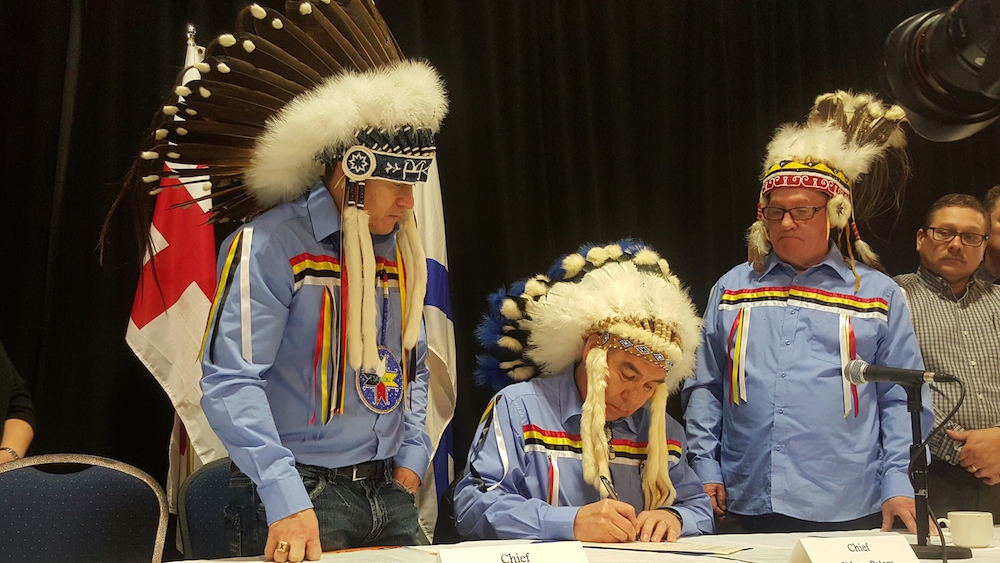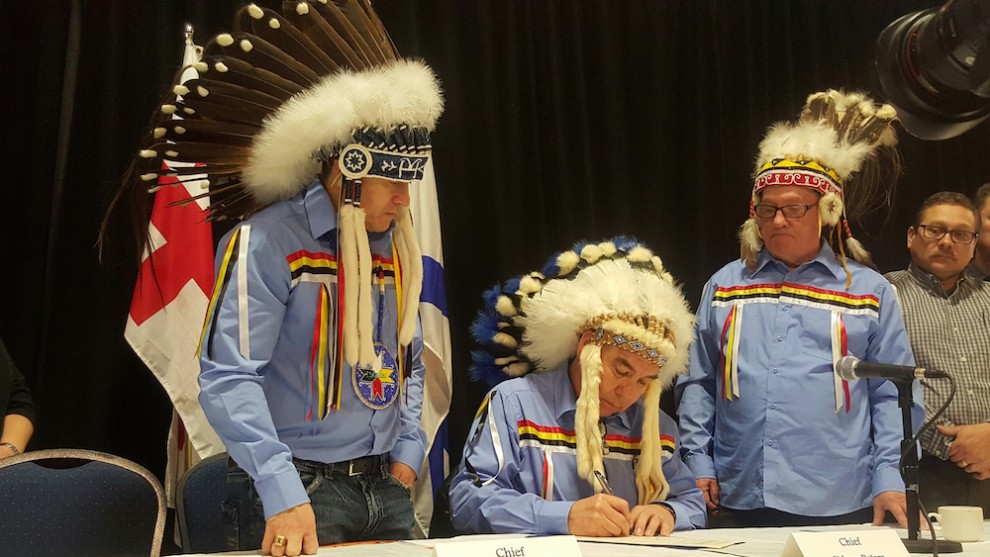Health
Health data sharing agreement signed to improve Mi’kmaq health
Registry includes data on doctor visits, mortality rates, mental health

caption
Glooscap First Nation Chief Sidney Peters (middle) signs the registry.
caption
Glooscap First Nation Chief Sidney Peters (middle) signs the registry.All of Nova Scotia’s 13 Mi’kmaq chiefs supported a new health data sharing agreement in a signing ceremony on Thursday.
The agreement, called the Client Linkage Registry, will allow the province and First Nations groups to share anonymous data on the health of their populations.
“We know that First Nations people have health needs that are different at times than other Nova Scotians. But until now we haven’t had a full picture with all the evidence at our finger tips,” said Leo Glavine, minister of health and wellness.
The registry has been in the works since October 2012. It includes information on doctor and hospital visits, mortality rates, mental health, and other things.
Chief Andrea Paul of the Pictou County First Nation says that the registry is the first of its kind in Canada, and necessary for the health of her community.
“The rate of breast cancer in our communities is similar to the rest of Nova Scotia, but women in our communities die from breast cancer at a higher rate. One reason for this could be that we aren’t finding the disease early enough, when it is most likely to be curable,” she said.
Health officials now know that diabetes is three times more common in First Nations people aged 50-69, four times more common in 40- to 49-year-olds and, most shockingly, five times more common among those aged 20-39 than it is for the rest of Nova Scotians.
The median age for someone in a First Nations community hospitalized for a heart attack is 57, compared with 69 in the rest of the province.
The creation of a registry goes hand in hand with the 19th of the 94 calls to action recommended by the Truth and Reconciliation Commission. It called on the government to work with First Nations to assess long-term trends in areas such as mental health, chronic diseases and availability of health care.
The Health Services Integration Fund contributed $487,947 to the creation of the registry.
“We do not want this health information to collect dust on a shelf,” said Paul. “We want to make sure that the information will be used to bring about change.”
To this end, they will create bulletins to share with community members, health officials and leaders in provincial and federal governments.
The first two of these, on diabetes and cancer, were launched at the ceremony.

